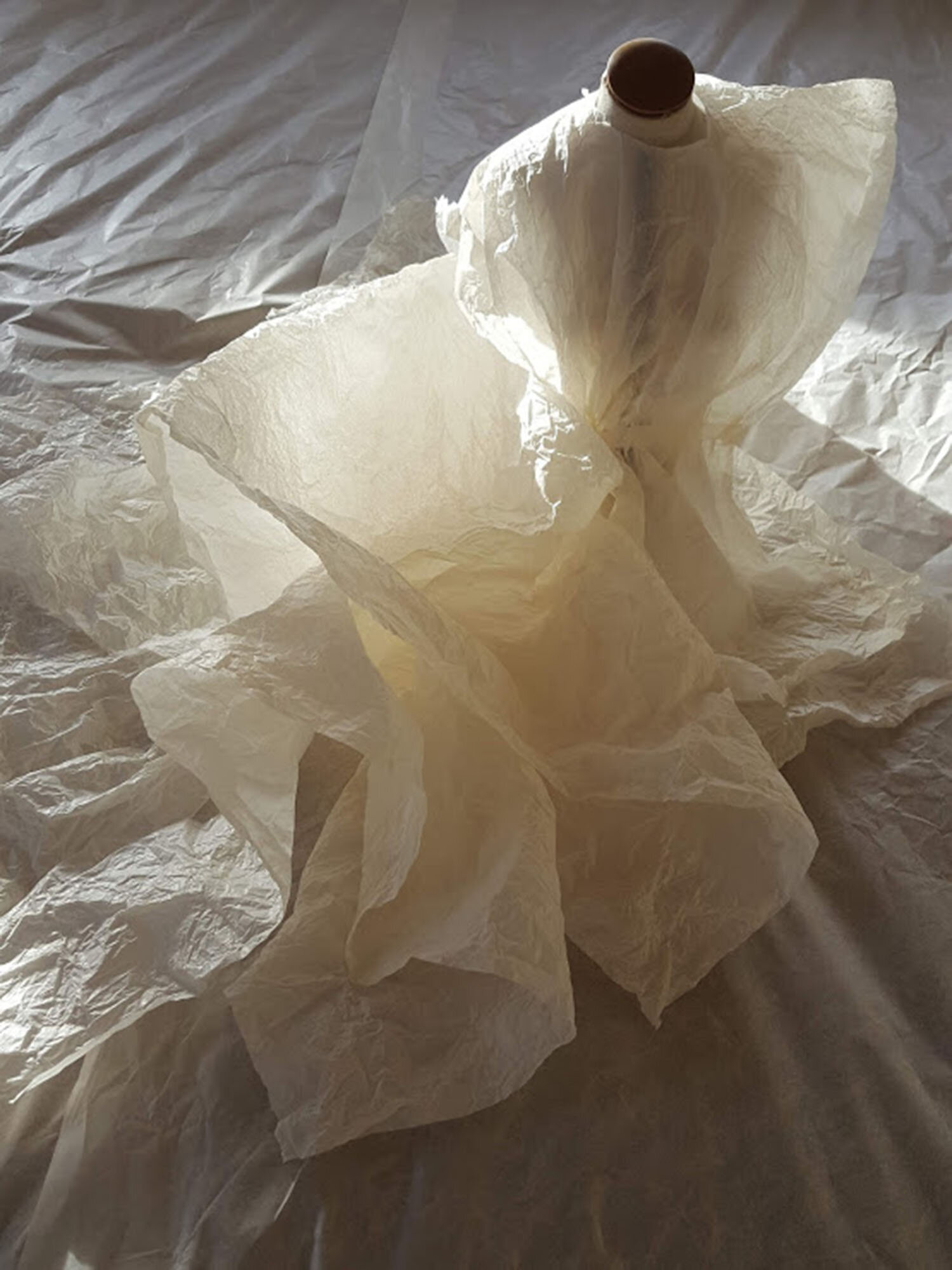Our Ephemeral Worlds: Fashion & Covid-19 reality
Rekha Shailaj
Our Ephemeral Worlds: Fashion & Covid-19 reality
Rekha Shailaj
New Zealand / Otago Polytechnic
Fashion design embodies the material processes. The tactile engagement with materials facilitates the phenomenological play and experience of fashion design. Kelly Dobson, as she explores the human relation with materials, proposes this question: “How does our relationship with materials shape both our art-making practices and our ways of experiencing the world?” She further theorizes, ‘the artist/material relationship’ and points out that it is a conversation undertaken by both the material and the artist, which results in their collective growth.
Level three restriction during the Covid-19 pandemic has presented an opportunity for a critical making engagement with fashion design, and its materiality. In the words of Jessica Barness and Amy Papaelias, “to be ‘critical’ is to analyse and evaluate, examine the existence of something, and note points of success, failure or shifts in perspective” and “ ’Making’, in contrast, indicates materialization or production, a means to determine the essential things needed to form, build, and create through a process of construction.”
In this body of work, I have picked paper, from a range of resources, as it embodies fragility as its key characteristic. Amidst our sophisticated human gathering instincts, it is paper, an everyday humble material that has been selected to give expression to the craft of making fashion. The response to restriction presents creativity in the ‘Thirdspace’, which is distinguished by the lack of normalcy. This body of work encourages the act of viewing a fashion artefact, in contrast to wearing. It directs us to engage in a discourse on the morphing notion of a fashion experience itself.
References:
Barness, J., Papaelias, A., 2015, Critical Making at the Edges in Visible Language, Vol 49 (3), p 5-11.
Dobson, K. (2013). Conversation: Materials. In R. Somerson & M. L. Hermano (Eds.) The Art of Critical Making: Rhode Island School of Design on Creative Practice (pp.138). John Wiley & Sons: New Jersey.
Our Ephemeral Worlds: Conversations Paper
An Object: process paper toiles
Paper Weight: process
Dramatic Unfold: process, paper toile
Paper Drape: process
In-Between: front view, two piece ensemble
In-Between: back view, two piece ensemble
Humble Wrap: front view, two piece ensemble
Humble Wrap: back view, two piece ensemble
Bio: Rekha Shailaj
email: rekha.rana@op.ac.nz
instagram: @Rekhashailaj
Rekha Rana Shailaj is a Senior Lecturer at School of Design, Otago Polytechnic teaching on the Fashion programme. Rekha graduated with a Bachelor of Design (Fashion) from Otago Polytechnic in 2005 and completed a Master of Fine Arts (Design) with distinction in 2011 from the Dunedin School of Art, Otago Polytechnic. As a conceptual designer, Rekha practices design in a multicultural environment, working with subjectivities and identities created through different fashion systems, drawing on both Eastern and Western sensibilities. Ethnographic clothing is an area of special interest, especially from India where she was born and raised. Her current research focus is on working with traditional clothing from India and extending the construction methods to create near zero waste fashion outcomes. Here design practice sits in a space which she describes as neither here nor there, but somewhere that is afloat and grounded in the binary of comfort and discomfort; the ‘Thirdspace’.









